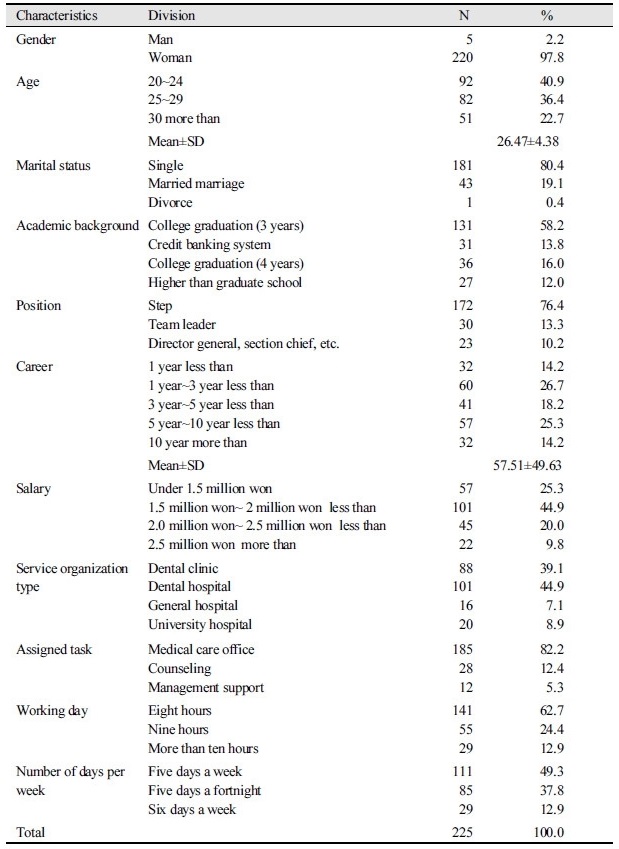Abstract
Objectives: The objective of this study was to identify the relationship between emotional labor and occupational stress of the dental hygienists, and the effects of emotional labor on their occupational stress and health problems including depression, anxiety and sleep. Methods: The survey was conducted using the questionnaires about dental hygienists’ working in medical institutions in Busan, Gyeongsangnam-do from August 19th and October 7th, 2016. Total of 225 participants were selected for data analyses. Frequency analysis, t-test, ANOVA, Pearson’s correlation coefficient analysis, and regression analysis were conducted using SPSS Windows ver. 21.0 program(SPSS Inc., Chicago, IL. USA). Results: The analysis of the factors affecting emotional labor, occupational stress, anxiety, and sleep by participants’ characteristics showed that those with higher education level, work position and annual salary had higher emotional labor. In addition, participants who worked 5 days every other week and were responsible for patient consultation had higher emotional labor. The analysis of correlations among emotional labor occupational stress, anxiety, and sleep showed positive correlations between emotional experience and emotional expression, occupational stress and emotional expression, and anxiety and emotional expression. On the other hand, negative correlation was found between anxiety and emotional experience. Regression analysis was conducted to examine the effect of emotional labor on job stress. Emotional labor was a factor affecting job stress and anxiety. Conclusions: In order to improve emotional control and vulnerability to stress among dental hygienists, intra-organizational training opportunities and mental health care strategies are needed. Additional broad-based studies are required to identify the factors affecting the occupational stress and emotional labor and to develop relevant intervention measures.
Figures & Tables

Table 1. General and task characteristics


